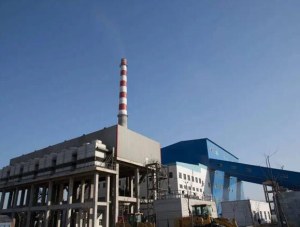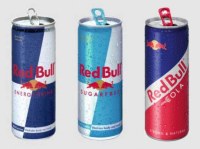Direct acc air cooled condenser (ACC) is a type of heat exchanger commonly used in thermal power plants. It is designed to convert steam from the turbine exhaust into water, which can then be returned to the steam cycle. Unlike a conventional water-cooled condenser, a direct ACC uses air as the cooling medium, allowing for more compact design and reduced water usage. The steam is fed through a series of finned tubes, where it is cooled by the flow of air, which is generated by a forced draft fan.
Operating Principle of Direct Air Cooled Condenser (ACC)
It is a cooling system in which air is used as the cooling medium and the steam from the steam turbine's exhaust is immediately condensed into water through the tube bundle of the air-cooled condenser. Its air-cooled condenser, air supply system, support structure, exhaust duct system, condensate collecting system, vacuum-pumping system, cleaning system, electrical system, and instrument control system are the primary components of its heat exchange system.
Features of Direct Air Cooled Condenser (ACC)
01
High thermal efficiency: Direct air-cooled condensers (ACCs) have a high thermal efficiency due to their finned tube bundles and large airflow, which allows for efficient latent heat transfer and ensures that the entire steam turbine exhaust is condensed.
02
Compact size: ACCs are designed to be compact and take up less space compared to conventional water-cooled condensers, making them suitable for installation in power plants with limited space.
03
Reduced water usage: ACCs do not require any water from an external source for cooling, making them more water-efficient than traditional water-cooled systems. This reduces the impact of the plant on the environment and results in potential cost savings for the power plant.
04
Reduced maintenance: ACCs have a simplified design and require less maintenance than water-cooled systems. There is less need for water treatment or mitigation systems to prevent leaks or corrosion, reducing maintenance costs for the plant. As a result, ACCs have higher reliability and less downtime, which helps reduce operational costs.
Advantages of Direct Air Cooled Condenser (ACC)
There are several advantages of using a direct air-cooled condenser (ACC) in a power plant:
Reduced water usage: As they do not require any cooling water, ACCs offer significant water savings compared to traditional water-cooled systems. This can help power plants meet environmental regulations and reduce their impact on the environment.
Compact design: ACCs are designed to be compact and require less space than traditional water-cooled systems. This makes them ideal for use in power plants with limited space and allows for easier installation.
Lower maintenance costs: ACCs require less maintenance than water-cooled systems and have a simplified design, reducing maintenance costs and improving plant reliability.
No water treatment required: Water-cooled systems require water treatment to maintain water quality and prevent corrosion. Since ACCs do not require cooling water, there is no need for water treatment or the associated costs.
Efficient operation: ACCs have a high thermal efficiency due to their finned tube bundles and large airflow, resulting in efficient latent heat transfer and ensuring that the entire steam turbine exhaust is condensed.
In summary, the main advantages of using a direct air-cooled condenser (ACC) in power plants include reduced water usage, a compact design, lower maintenance costs, no water treatment requirement, and efficient operation.
Maintenance Of Industrial Air Cooling Systems
Regular cleaning of air filters to ensure proper airflow and prevent clogging.
Inspection and cleaning of evaporator and condenser coils to remove any accumulated dust or debris.
Lubrication of fan bearings and motors to ensure smooth operation.
Inspection of electrical connections, wires, and controls for damage or wear and tear.
Checking of refrigerant levels and ensuring there are no leaks.
Regular inspection of refrigerant lines for any damage or corrosion.
Cleaning and inspection of drain pans to prevent the buildup of algae and bacteria.
Inspection of ductwork and insulation to ensure proper airflow and prevent leaks or damage.
Localisation : Luoyang CBD, No.288 of Kaiyuan Avenue, Luoyang, Henan, China, 471000 luoyang,
Personne à contacter : hua Long, 037967891167










